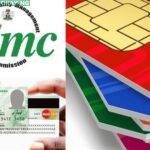
User interface (UI) and user experience (UX) design are transforming Nigeria’s fintech, medical, and educational sectors. In fintech, the shift from cumbersome interfaces to sleek, intuitive designs has significantly improved customer engagement. Banks and financial institutions are now prioritizing user-friendly mobile apps that feature biometric authentication and personalized dashboards. This focus not only enhances user satisfaction but also promotes financial inclusion, making banking services accessible to a wider audience.
The emergence of learning management systems (LMS) and interactive educational applications has made it easier for students to navigate their coursework. These platforms emphasize simplicity and interactivity, fostering an environment that encourages active participation and enhances overall learning outcomes. By prioritizing user experience, educational technology is bridging gaps and adapting to the needs of today’s learners.
Abdulahi, a seasoned expert in user interface (UI) and experience (UX) design, has observed remarkable transformations in Nigeria’s fintech sector over recent years. Banks have shifted from cumbersome interfaces to sleek, user-friendly designs that prioritize customer satisfaction. As Abdulahi notes, “From difficult interfaces to sleek and simple designs, banks have prioritized enhancing customer interactions to reduce processes and improve satisfaction.” This evolution reflects a broader commitment to improving customer experiences across various sectors, ultimately making services more accessible and efficient.
Specific improvements in user interfaces can be seen in the mobile banking apps of prominent Nigerian banks like GTB and Access Bank. These apps now boast features such as biometric authentication, personalized dashboards, and intuitive navigation. “Nigerian banks have introduced mobile banking apps with user-friendly interfaces, allowing customers to perform transactions seamlessly from their smartphones,” Abdulahi explains. This focus on convenience has made banking more accessible, helping to bridge gaps in financial inclusion and engagement among users.
The education sector is not lagging; it has embraced advancements in technology to enhance learning outcomes significantly. Learning management systems (LMS) and educational apps have been designed with interactive features and simple interfaces, making them more engaging for students. Abdul highlights the growing trend: “There has been a growing emphasis on leveraging technology to improve user interface and experience.” This shift is crucial for fostering effective learning environments and increasing student engagement.
In healthcare, user experience improvements have led to the rise of telemedicine platforms and efficient health information systems. These advancements empower patients by facilitating easy access to medical information and allowing them to schedule appointments and communicate with healthcare providers. Abdul points out, “User-friendly interfaces empower patients to access medical information, schedule appointments, and communicate with healthcare providers more efficiently.” This accessibility is vital for improving health outcomes and streamlining healthcare delivery.
The role of UI and UX in promoting financial inclusion, educational access, and healthcare services cannot be overstated. “User interface and experience are crucial in making financial, educational, and healthcare services more inclusive and accessible to every citizen in Nigeria,” Abdul states. Simplified interfaces enable users with limited technical skills to navigate essential services effectively, fostering greater participation and engagement across the board.
Looking ahead, the potential for further transformation in Nigeria’s fintech, education, and medical sectors is immense. Innovations such as artificial intelligence, voice recognition, and virtual reality promise to revolutionize how users interact with digital services. “The future of user interface and experience holds important potential for transforming the fintech, education, and medical sectors in Nigeria,” Abdul envisions. These technologies will likely lead to more personalized and effective interactions, enhancing user satisfaction and overall service quality.
To maintain competitiveness in the ever-evolving fintech landscape, Nigerian banks must prioritize customer-centric design principles and embrace new technologies. “Nigerian banks must continue to prioritize customer-centric design principles and embrace newer technologies to deliver seamless and personalized banking experiences,” Abdul advises. By leveraging data analytics and adopting a human-centric design approach, banks can better anticipate and meet the needs and preferences of their customers, ensuring they remain at the forefront of the industry.












